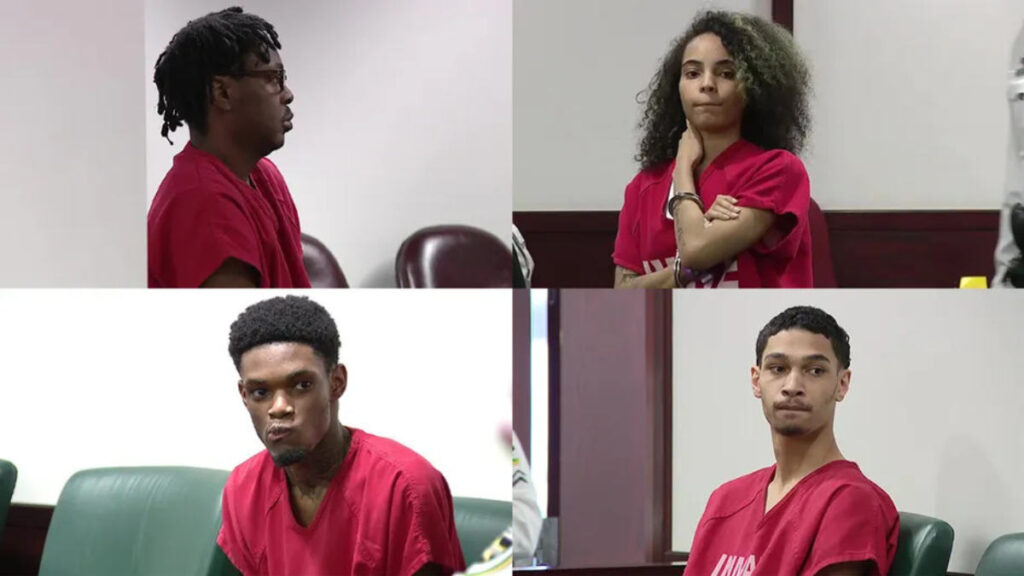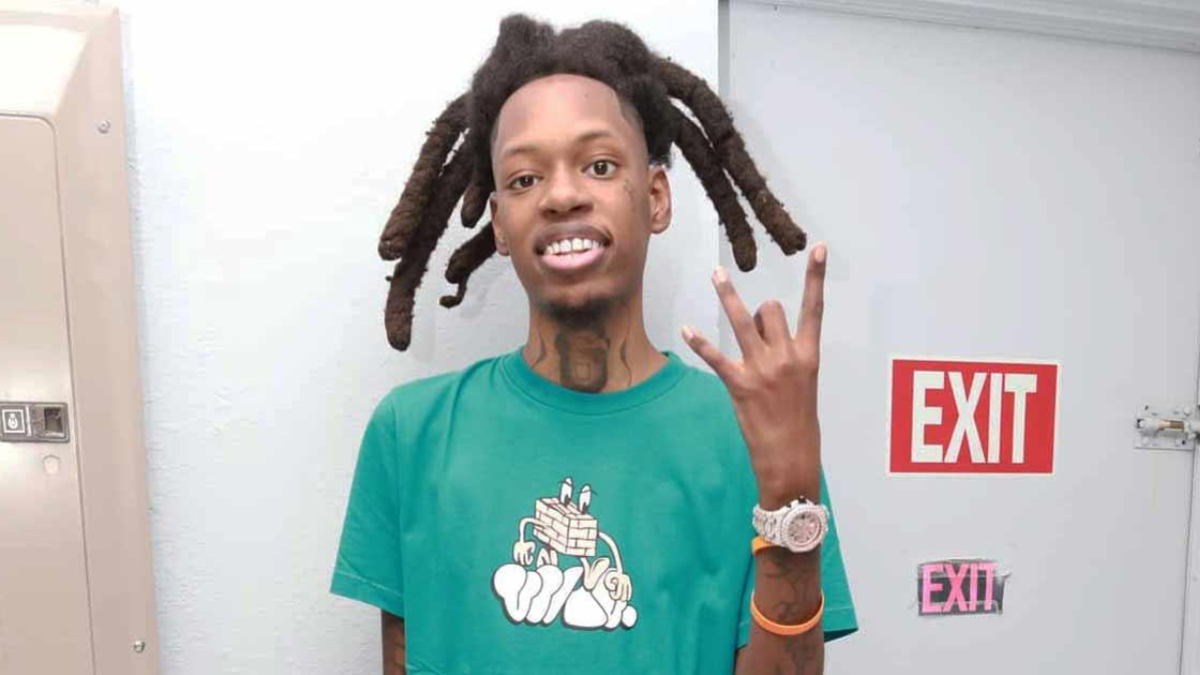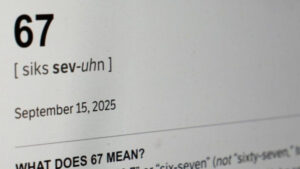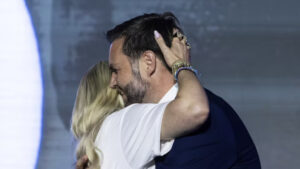The story of Julio Foolio murder still feels like a bruise that hasn’t healed — especially for fans who watched the Florida rapper grow from local talent to viral fame. Now, months after that tragic night outside a Tampa hotel, the courtroom drama surrounding his death has taken an unexpected twist.
Because while the headlines scream “justice,” the verdict — and the emotions behind it — tell a more complicated story.
A Birthday That Turned into a Nightmare
June 23, 2024, should’ve been a celebration. Charles Jones II — better known to millions online as Julio Foolio — had just turned 26. Friends said he’d been smiling, posting, laughing, soaking in his big day. Then, just hours later, gunfire shattered the night outside a Tampa hotel, ending his life in seconds.
Investigators said it wasn’t random. It was an ambush — a chilling hit tied to the kind of street tension Foolio had always tried to outrun through his music.
For months, fans watched police reports and grainy footage online, praying the case wouldn’t fade into another “unsolved” tragedy in hip-hop.
It didn’t.
The Woman in the Spotlight
When 25-year-old Alicia Andrews walked into a Tampa courtroom this fall, she wasn’t just another defendant — she was suddenly the face of one of the most-talked-about murder trials in Florida.
Prosecutors claimed Andrews helped track Foolio’s every move that night, allegedly using her phone and car to help others corner him. They painted her as part of a team that “stalked” the rapper before he was shot — a chilling image that had fans furious online.
Her defense? A completely different story.
Andrews said she was manipulated, even abused, by her boyfriend — insisting she didn’t know what was coming. In her version, she was just a girl on a trip gone wrong, dragged into a nightmare she didn’t plan.
It’s the kind of courtroom contrast that feels pulled from a true-crime docuseries — cold facts versus messy human truth.
Sometimes, that tension is what lingers the longest.
A Verdict That Left the Room Silent
After days of tense testimony and emotional outbursts, the Tampa jury reached its decision on October 31, 2025. Andrews wasn’t convicted of murder. Instead, she was found guilty of manslaughter — a lesser charge that left Foolio’s fans divided.
Some called it justice. Others called it heartbreak all over again.
“She didn’t pull the trigger, but she played her part,” one fan posted under a Court TV livestream, echoing the mix of anger and exhaustion that’s followed the case.
Andrews was also found not guilty of conspiracy to commit murder, meaning the jury didn’t believe she planned the killing. Her sentencing is set for December 8, 2025, and she faces years behind bars — though not life.
As E! News put it, “The verdict might close one chapter, but it won’t end the pain.”
And that’s exactly how it feels.
Chaos Inside the Courtroom
The trial wasn’t without its fireworks. Courtroom cameras caught more than legal arguments — they captured raw emotion.
At one point, things nearly erupted when people in the gallery accused Andrews’ defense of photographing them without permission. The judge halted proceedings and banned all photography in the room after calling the behavior “inexcusable,” per Court TV and Newsweek.
It was one of those moments where you could feel the frustration on every face — victims’ families, reporters, even the bailiff trying to keep calm.
Justice, it seems, never moves quietly.

What Comes Next
Andrews is just one of five people charged in connection with Foolio’s killing. The others — Isaiah Chance, Sean Gathright, Rashad Murphy, and Davion Murphy — are expected to face trial next year. Prosecutors say the group plotted the ambush as part of a long-running feud that stretched from Jacksonville to Tampa.
But fans aren’t just following the legal side — they’re grieving the artist who never got to see his next era.
Before his death, Foolio had been teasing new music, telling followers that his next project would “change the energy.” His mix of raw honesty and dark humor earned him both critics and loyal supporters — the kind who still flood his old Instagram posts with blue hearts and dove emojis.
“Still can’t believe you’re gone, Foolio,” one comment read this week. “You deserved more time.”
It’s that shared ache that makes the trial updates hit even harder.
The Larger Conversation
Hip-hop has always had a complicated relationship with tragedy. From Tupac to Pop Smoke, too many promising voices have been lost to violence tied to fame, rivalry, or survival itself.
Julio Foolio’s story — both his rise and his fall — fits right into that painful pattern.
And while courtroom verdicts can label guilt, they can’t fix what was broken that night.
They can’t bring back the boy from Jacksonville who turned pain into bars. They can’t rewrite a birthday that ended in bullets.
But they can force a spotlight onto the people and systems that let it happen — and maybe, just maybe, change the next headline before it’s too late.
Because as Foolio once rapped, “I made it out the mud — but they still want me buried in it.”
And that line, now, feels hauntingly prophetic.
As Tampa prepares for sentencing and more trials ahead, Foolio’s story keeps pulsing online — part cautionary tale, part open wound.
Fans still post his freestyles like digital memorials. His name trends every time there’s a courtroom update. And even those who never listened to his tracks can feel the weight of what was lost.
It’s a reminder that behind every headline, there’s a human heartbeat that stopped too soon — and a world still trying to understand why.
Sometimes justice doesn’t feel like closure. It just feels like the next breath after silence.
Mohit Wagh is the co-founder and feature writer at The Graval, bringing 10 years of experience in celebrity and pop culture reporting. He crafts engaging, fact-driven stories that capture the pulse of what’s trending across Hollywood and beyond.




